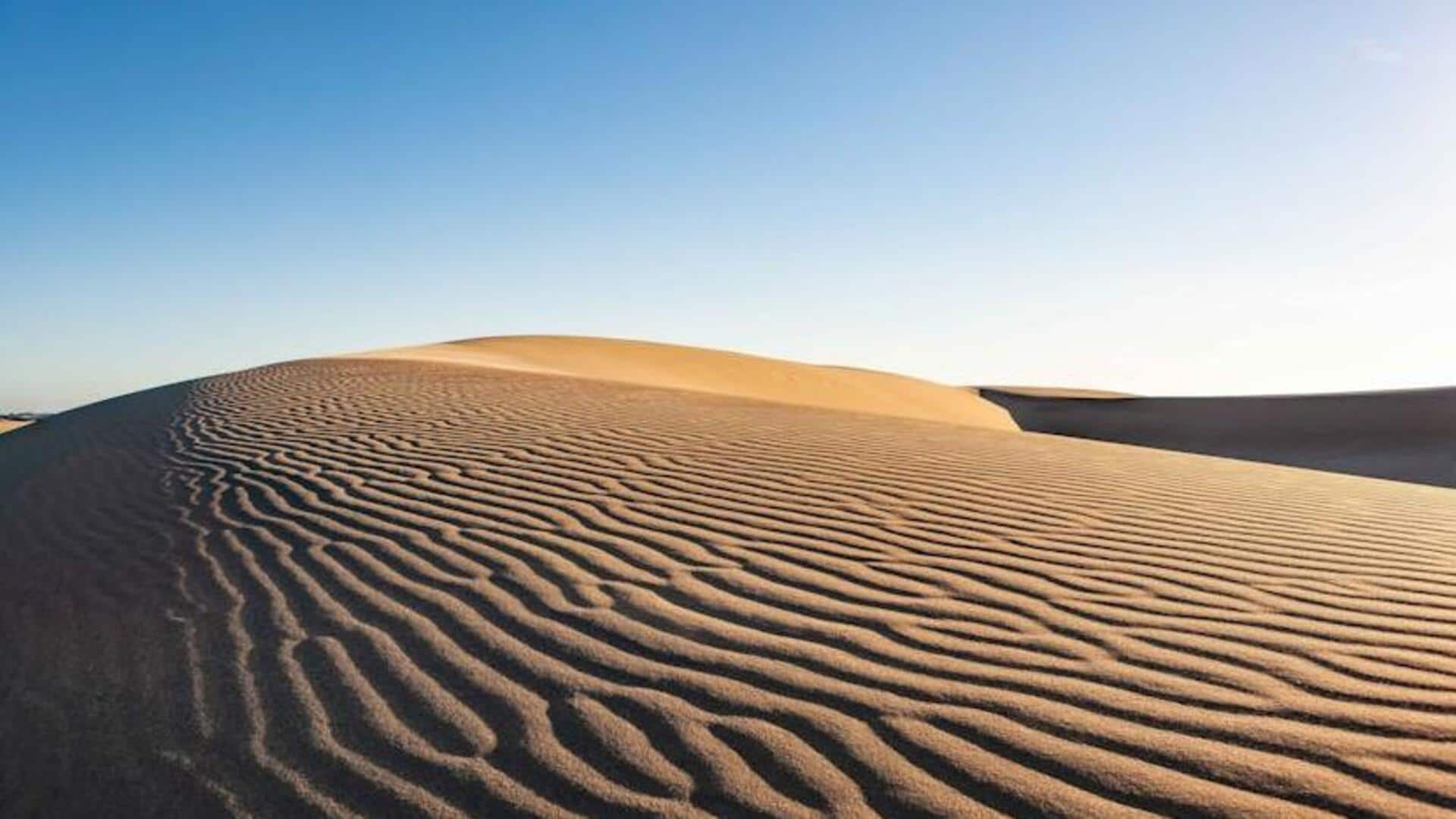
Visiting the Sahara Desert? Don't forget to pack these things
What's the story
Setting out on a journey through the Sahara Desert is an unforgettable adventure. The expansive dunes, bathed in sunlight, create a surreal landscape that feels like another planet. But this extreme environment requires meticulous planning and preparation. This guide is designed to help you pack effectively, ensuring you are well-equipped to face the majestic yet demanding conditions of the desert.
Tip 1
Protective clothing essentials
In the Sahara, your clothing is a vital shield against the elements. Choose lightweight, long-sleeved shirts and pants for sun protection. A wide-brimmed hat is also essential for your head. As night falls, temperatures drop sharply, making a warm jacket or fleece necessary. These garments are crucial for your protection from the desert's extreme temperature fluctuations.
Tip 2
Navigational gear must-haves
Navigating the Sahara requires a reliable GPS and compass due to its disorienting terrain. Always accompany these with detailed maps for backup. Before embarking, ensure all devices are fully charged. To maintain power during your adventure, bring along solar chargers or ample extra batteries, as they are essential for keeping your navigational gear operational throughout your desert journey.
Tip 3
Hydration and nutrition supplies
In the Sahara's heat, carrying at least three liters of water per day is crucial for hydration. Always pack water purification tablets to prevent illness. For sustenance, bring along high-energy snacks like nuts and energy bars. These are convenient as they don't need cooking or refrigeration, providing essential nutrition without hassle in the desert's challenging conditions.
Tip 4
Overnight camping equipment
For those planning to spend nights amidst the Sahara's sands, a robust tent tailored for sandy landscapes is indispensable. Accompany this with sleeping bags that can withstand the desert's nocturnal chill. To enhance your comfort and provide a barrier from the cold ground, don't forget a lightweight sleeping pad. These items are non-negotiable for a safe and comfortable overnight experience in the vast desert.
Tip 5
Emergency kit components
Safety is crucial in the Sahara. Your emergency kit should have a first-aid kit for injuries, a snake bite kit for venom encounters, and a multitool for repairs. Pack a whistle to signal for help, a firestarter for cold nights, an emergency blanket for warmth, and a signaling mirror for rescue during daylight. Learn to use these items before your desert adventure begins.